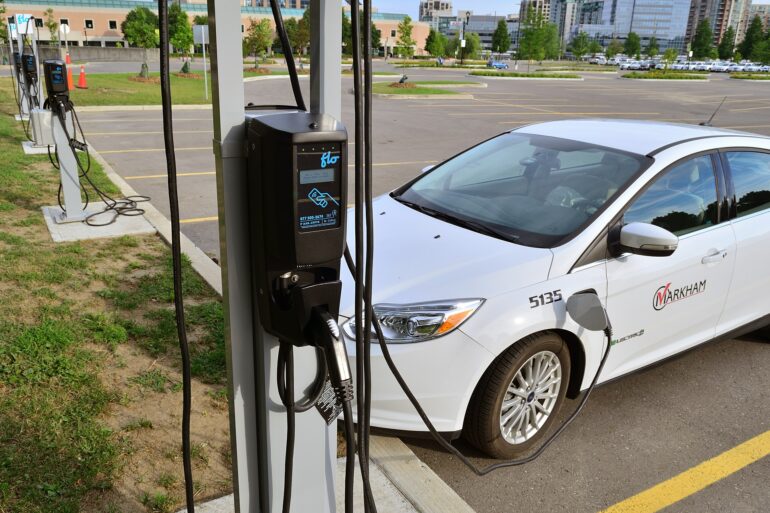In a significant move, the GOP-led Senate reportedly voted 51-44 on Thursday to revoke California’s authority to set its own tailpipe emissions standards, a decision that could hamper the nation’s electric vehicle (EV) market.
This legislation nullifies a 2022 California measure, later adopted by 11 other states, which aimed to ban the sale of new gasoline-powered cars by 2035. Following the Senate’s decision, the resolution will move to President Trump for final approval after passing in the House.
Proponents of the repeal, including many U.S. automakers and auto dealers, argue that maintaining California’s waiver—which allows the state to impose stricter emissions regulations than federal standards—could jeopardize the automotive industry.
They contend it would compel manufacturers to produce vehicles that may not meet public demand.
Senate Majority Leader John Thune (R-S.D.) characterized the waiver as an “electric-vehicle mandate” imposed by the former Biden administration, asserting that overturning it is vital to protect the U.S. economy.
California officials have vowed to challenge this decision legally. Attorney General Rob Bonta condemned the vote as an attack on the state’s longstanding efforts to combat pollution.
“We won’t let it happen, especially as we face worsening air quality and a climate crisis,” he declared during a press conference alongside California Governor Gavin Newsom and other leaders.
The Clean Air Act of 1970 allows California to obtain waivers from the Environmental Protection Agency (EPA) for more stringent clean air regulations.
The California Air Resources Board (CARB), responsible for implementing these standards, maintains that the rules provide flexibility for automakers to comply. These regulations were set to be phased in starting in 2026.
“This is a huge setback, not just for California but for all states that have adopted similar standards,” said Senator Adam Schiff (D-Calif.), warning that this decision could hinder the U.S. from keeping pace with global advancements in EV technology.
Senator John Barrasso (R-Wyo.), a key advocate for the repeal, framed the legislation as a rejection of “the Democrats’ delusional dream of banning gas-powered vehicles forever,” claiming it dismantles a crucial element of the Green New Deal.
Currently, demand for EVs has declined compared to previous years. Data from Motor Intelligence indicates that EV sales, which constitute about 7% of the U.S. auto market, fell 5% in April, even as overall vehicle sales increased by 10%.
Factors such as limited discounts, scarce charging stations, and potential cuts to incentives contribute to this downturn.
Major automotive manufacturers have united in their opposition to California’s regulations. Toyota publicly criticized the state’s measures last year, while General Motors encouraged its employees to lobby against the waiver.
Despite the Senate’s Republican majority, which holds a 53-47 edge, most legislation typically requires 60 votes to advance due to the filibuster rule.
However, Republicans argued that California’s EPA waiver falls under the Congressional Review Act, allowing them to overturn it with a simple majority.
[READ MORE: Senate Passes New ‘No Tax on Tips’ Bill]



